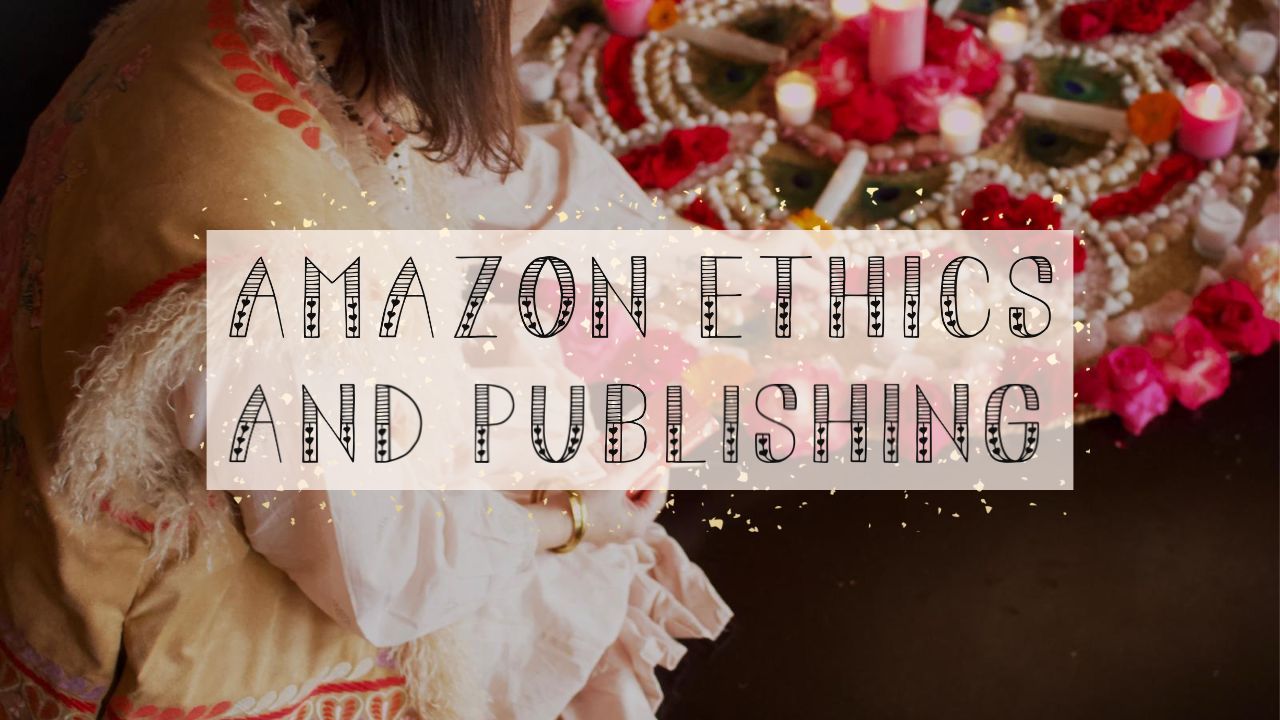Amazon, Ethics and Publishing
Oct 15, 2025
When I first set out to publish Yoni Codes: Reclaim the Power to Heal, I imagined a pathway that would be as ethical and values-aligned as the content of the book itself. In an ideal world, the process of releasing a book about healing, sovereignty, and feminine wisdom would flow through channels that embody those same principles.
The reality, however, was much more complicated.
First off I chose to self-publish because I wanted to retain full creative control and bring the book into the world on my own terms. Traditional publishing routes often mean long timelines and gatekeepers, whereas self-publishing allowed me to stay true to the vision and message of Yoni Codes without compromise. I’ve loved working with mainstream publishers in the past (and may do so again in the future) but for this book I knew it had to be self-published.
Lulu vs. Amazon: The Trade-Offs
I began with Lulu, a self-publishing platform that offered independence and the possibility of sidestepping the corporate behemoth of Amazon. I invested time, energy, and money setting the book up there, believing it would be a better fit for my values. I’d previously published ‘The Yoga of Birth’ with Lulu and it had worked out well. But that was over a decade ago and times change!
This time with Lulu the numbers just didn’t add up. The print and shipping costs were so high that it placed the book outside of reach for many of the women I wrote it for. A text about empowerment is meaningless if it cannot actually be accessed by the community it seeks to serve.
Amazon, by contrast, offered affordable print-on-demand and global distribution. It was not my first choice—but it quickly became clear that it was the only way to ensure the book would actually reach readers. And it has: within days of release, Yoni Codes hit number one in Ayurveda on Amazon. That visibility matters, not for vanity metrics, but because it places the book into hands and hearts that might never otherwise have found it.
An Ethical Dilemma
Of course, I’m not blind to the ethical challenges of working with Amazon. As some have rightly pointed out, it’s a company with a troubling track record—on taxation, on labour practices, on environmental impact, and, more recently, on contracts with governments engaged in violent conflict. These are not small issues.
One of my longtime students, for example, wrote me a beautiful, thoughtful review of the book. But she couldn’t publish it on Amazon because she doesn’t spend enough there to qualify for review rights. This made sense, given her work in ethical fashion and her intentional avoidance of Amazon. Her choice reflects a kind of consumer activism I deeply respect.
And yet, for me as an author, I was faced with an impossible trade-off: publish through smaller channels and risk the book never being read, or publish through Amazon and ensure it is available widely.
Distribution Over Profit
What I ultimately realised is that Yoni Codes was never about commercial success. It has always been a passion project. The goal is not to generate revenue—it is to share a message, to create resonance, to place tools for healing into women’s hands.
Amazon offered what no other platform could: distribution and affordability. And in the end, distribution outweighed my discomfort with the platform itself.
So yes, publishing through Amazon was a compromise. It doesn’t sit perfectly with my values. But it has allowed the book to live in the world in a way that would have been impossible otherwise.
I have come to peace with this decision, because perfection is not possible in this system. What matters to me at the moment is that women are reading Yoni Codes, that conversations are being sparked, and that healing is being shared.
And I deeply honour those who make the choice not to buy from Amazon. I respect that stance and I support those who live their values through intentional consumer choices. For them, I’ve kept the Lulu link available, even if it costs more.
In business, as in life, we often find ourselves navigating these kinds of imperfect decisions. Yoni Codes has reminded me that integrity doesn’t always mean avoiding compromise. Sometimes it means choosing the path that allows your work to serve most fully, even if the container is flawed. We live in a patriarchal, capitalist system – most of our business decisions are flawed to some extent. On which note I’m going to share another blog post with you next month that tackles the Service NSW Guidelines of online trading from a consumer perspective. Until then – stay conscious and spend your dollars wisely where you can!
🌹🌹🌹🌹🌹🌹🌹
